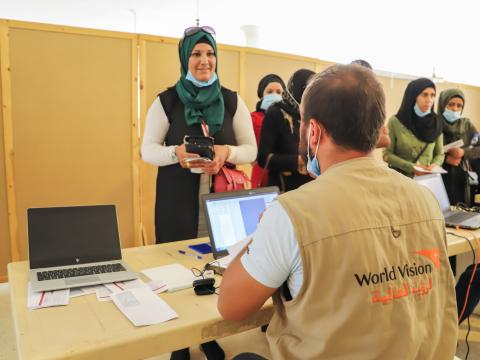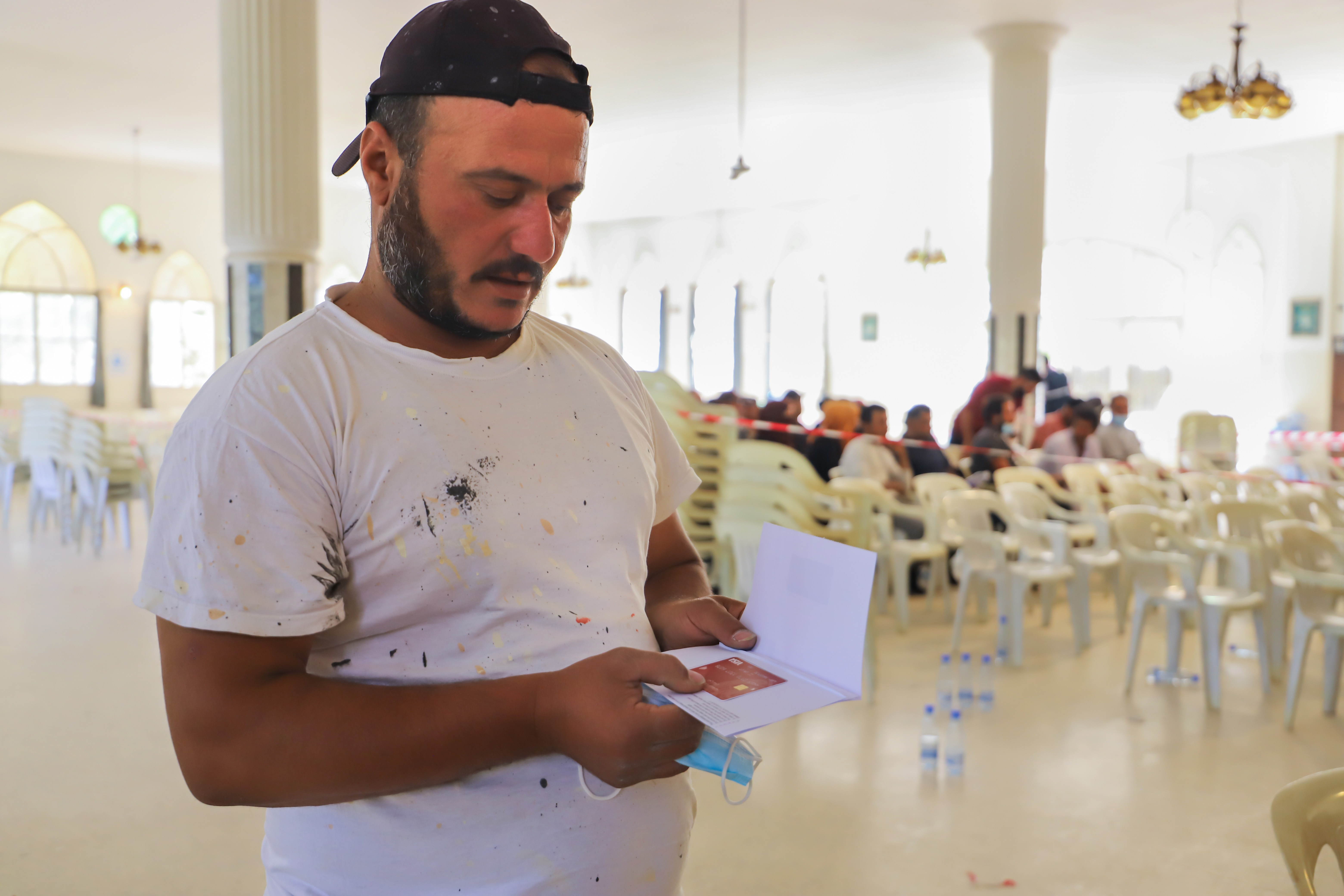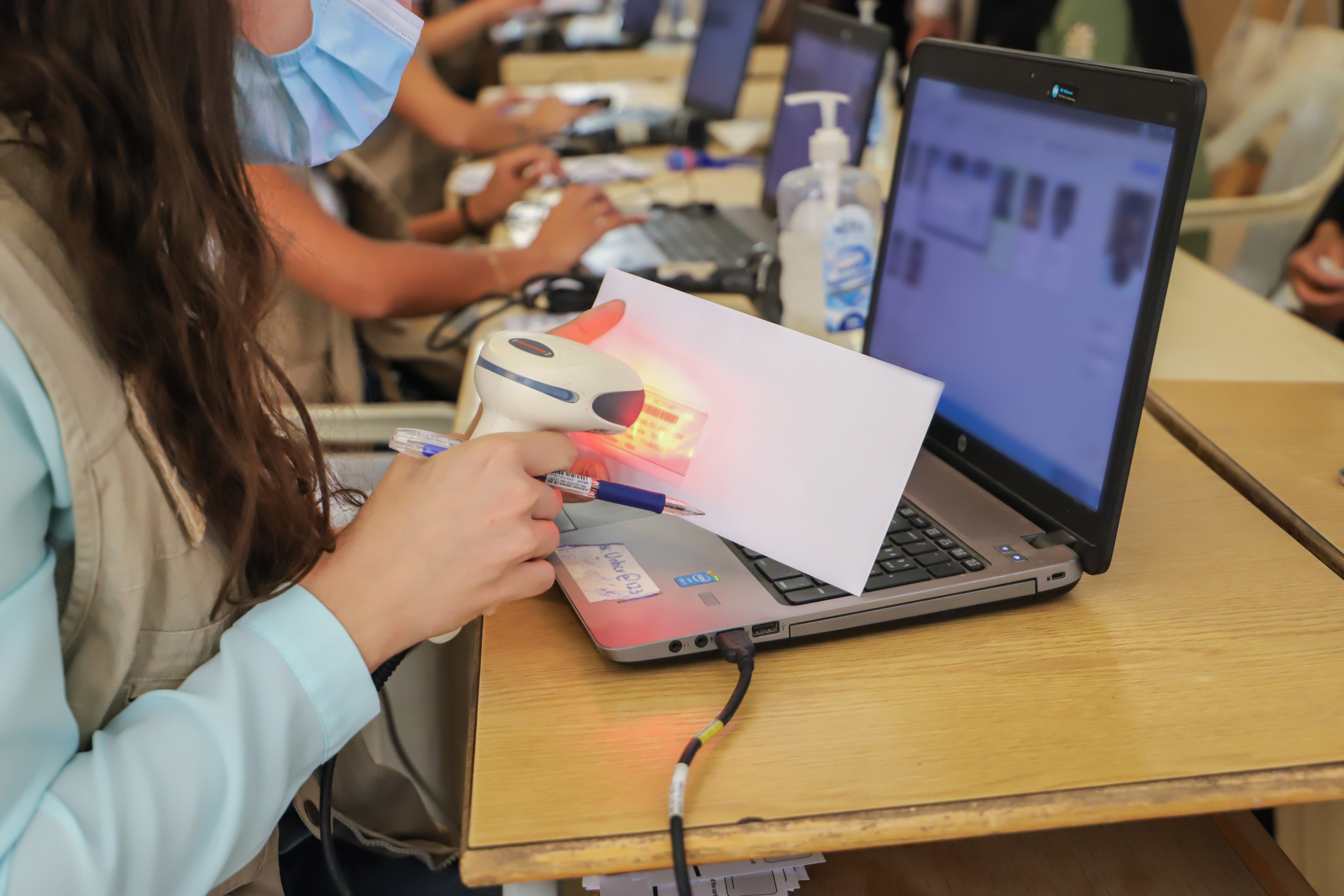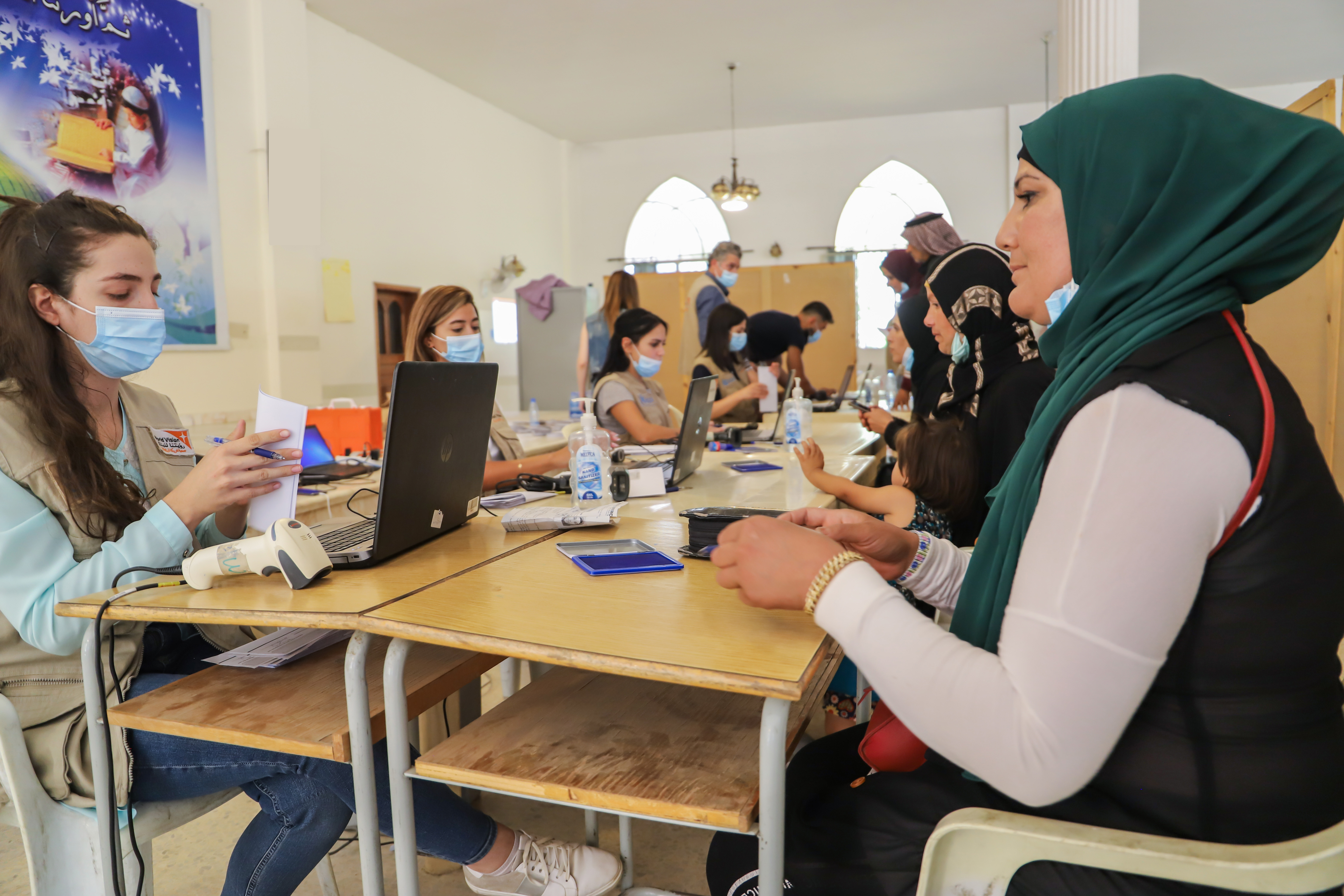“At least I know my children will not go hungry”: e-cards; a sense of normalcy

The United Nations World Food Programme (WFP) and World Vision have partnered in Lebanon to support families impacted by the multiple crises with food assistance. One of the programmes is the Food E-Card which functions similarly to a prepaid debit card where money is stored and can be cashed to cover basic food needs.
“What is your favourite food?” is quite a common question. Yet, a more prevailing question for many today is “did you eat?”. Sadly, food is a privilege for many even in 2022. Syrian refugees in Lebanon find themselves on the verge of a hunger crisis due to skyrocketing food prices and limited work opportunities.
Fourty-two-year-old Mohammad escaped from a crisis just to enter a new one. Eight years ago, due to the war in Syria, Mohammad left his home country searching for a safe haven for his family. However, he did not expect an unprecedented financial crisis to meet him on the other side. “I am a daily construction worker, but I work only one day a week. Even when I work there is no guarantee that I will be paid,” he says.

Due to the economic crisis, Mohammad did not want to give in to the difficult situation and did his best to provide for his four children. “Our rent costs one million Lebanese pounds and last month I only made 400,000 (equivalent to US$ 10 as of today). Thus, I had to gather plastic products from the streets and sell them. I needed to make some sort of additional income.”
World Vision, in partnership with the United Nations World Food Programme (WFP), was able to support Mohammad with cash assistance through an Electronic Card (e-card). It functions just like a prepaid debit card where money is stored on a monthly basis to cover his basic food needs. “I am receiving three million Lebanese pounds on my card. I am free to spend them however I want at the grocery shop. Every month I can map out what we need at home and freely buy the items. I am very grateful for this support because at least I know my children will not go hungry,” explains Mohammed.

Cash assistance allows the people benefitting to have some sort of normalcy by making their own choices and prioritizing their spending. In addition, it strengthens local host economies through the injection of funds into existing markets. “Due to the inflation and lack of work opportunities, many Syrian refugees are unable to provide the basic needs for their families. The e-card helps them maintain a healthy life and gives freedom of choice at the market,” says Walid, World Vision team leader.
Food is a basic human right and essentially it is life, yet 88% of Syrian refugees in Lebanon are food insecure according to WFP. “Prior to the e-card, I was always worried about putting food on the table for my three children. However, with this card, I am free to buy whatever I think is needed for my house. This month I will buy rice, oil and sugar. Thank God, my children will not sleep hungry,” says twenty-seven-year-old Hadya. “I am not working, and my husband is barely working. With the money I would have spent on the food items I can pay rent instead and ensure my family is sheltered,” she adds.

In the hope to alleviate their current financial constraints, World Vision and WFP aim to support more than 434,000 Syrian refugees through the provision of electronic cards (e-cards).